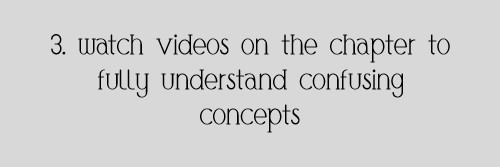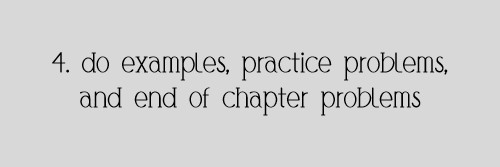How Do I Break The Cycle
how do i break the cycle
prepare yourself for the absolutely insufferable lack of satisfaction found in forgiveness
More Posts from Thecaffiend and Others
I'm really tired of people on social media saying things like "being silent on an issue means you side with the oppressors" like yes this is true in an abstract sense and is true in a more definite sense if we were all celebrities with large platforms and someone was interviewing us and they asked us about some political issue directly and we said "no comment" but choosing to exist on social media without endlessly discussing every political issue happening throughout the entire world does not mean you stand with oppressors, it means you're just living your life and focusing your energy (mostly offline!!!!!!!) to the few causes and issues most important to you, and that's entirely okay... enough with the fake woke guilt-tripping



Tkhorm, a huge black beast and my old good friend, walks in the sunset field ~
Made in Blender.
(This is my original character of my personal story; he is not supposed to represent anything or anyone else)

hey guys! for those of you who may not know me, I am Alexi (@alexistudies) and the long awaited masterpost is FINALLY here on how I study for Organic Chemistry (which i might have to retake lmaooo but that’s a story for a different time). Now, I don’t get the best grades, as my professor’s exams are ridiculously hard, but I have learned the material enough to teach others. If you’re struggling with how to navigate this mind-boggling course that’s pretty much like learning a new language, this post is for YOU! lets gettin it crackin’

Always start by reading the material BUT don’t go in with a cold read (aka just reading the chapter from start to finish) break it into 2 steps: SQ3R and then fully read.
SQ3R: Survey, Question, Read, Recite, Review
disclaimer: personally i do this method by chapter section so I am not overwhelmed with material!
survey: skim the material. read the titles of the sections and subsections, and glance over the actual material within the chapter. take mental note of weird acronyms you may see or vocabulary that stands out. this will prime your brain for all the information you’re going to get when you go the 3R’s.
question: get some sticky notes and write down questions for each section in the textbook. for example, if you just skimmed the section on “Sn1 Reactions”, write a question down on the sticky note like “what does Sn1 mean? what does its mechanism look like?” and stick it in the corresponding place. even if the section seems direct and you don’t have any questions, create one regardless. This will help the information stick! Don’t worry about answering them just yet.
read: pretty self explanatory but read a section of the textbook. read it twice if things still seem fuzzy after the first read, and this time, go slower. now, there should be a sticky note where you wrote a question during the second part of this process. write the answer in to the question based on your knowledge from your reading. also, feel free to take note of any other things that seem to stand out on this sticky note. again, i do this section by section in my textbook so i don’t get burned out or overwhelmed.
recite: once you’ve done the first three steps for the whole chapter, its time to collect all the sticky notes!!! set them down on a flat surface in their chronological order and get prepared with your notebook/tablet and stylus/etc. now you’ll compile all your sticky notes into reading notes! during this stage, read your sticky notes out loud and supplement your reading notes by copying & annotating examples from the textbook.

At this point, you should have already read and done most of the first step. Now, its time to go back through and really engage with the material. As you skim each section, you’ll answer the questions you wrote on the sticky notes! This is pretty self explanatory, I hope. This will make sure that you engage with the material and not just blankly read it. I’m a person who gets bored with textbook reading fairly quickly, this really helps me. Its okay if you don’t fully understand the concepts during this step because you’re just putting your feet in the water.

Still confused on the material? Have some small concepts you just can’t seem to get yet? Its okay! Now, you’ll get auditory/visual exposure which will probably help. I watch The Organic Chemistry Tutor’s videos whenever I feel stuck and I take notes as I watch the video to ensure I’m really paying attention.

This step is to really see how much you know. Start with examples from the book, as the solutions are usually right there and they will walk you through. Then, move on to practice problems. In my textbook, they have exercises that follow right after most examples to practice that same concept. Once you’ve gone through as many of these as you deem fit, you should do the end of chapter problems! These problems tend to be a little more comprehensive and build on things from previous chapters, while also being more conceptual.

pls do your homework. it will reinforce everything. i’ve realized that the homework is not necessarily what will be covered on the exam, but it’s like … drills to see if you know the basics. but, this really depends on the professor and what they assign as homework! for me, the homework doesn’t even begin to compare to the complexity of the exams. highlight anything you get stuck on and once you’re done, go back and redo those problems + review that section in your notes and textbook!

Review sheets are a life saver because once exams come around, you have one piece of paper you can study from and you don’t have to carry around all your notes! for ochem specifically, i recommend making a reaction sheet that’s a flow-chart (i.e., if i have these reagents, its going to be a hydroboration reaction). this was something i was hoping to do before my final, but i just burned out and never got to it :(( so i need to practice what i preach either when i retake ochem1 or when i move on to ochem2.
bonus tip!
Ask yourself the following questions when you study.
can you name things? (types of reactions, molecules using IUPAC nomenclature, etc)
can you identify things? (stereochemical relationships between molecules, concepts used in a reaction like markovnikov addition, etc)
can you develop things? (desired products for a reaction, etc)
can you interconvert between things? (from wedge dash > newman projection, chair conformation > newman projection, skeletal structure > fischer projection, reaction > energy coordinate diagram)
Hopefully this helps! I enjoyed making this post because I do enjoy organic chemistry, I just really need to do better in the class next semester and better implement these study techniques (and maybe find new ones that work better)!!
Especially when you print a six THOUSAND page report on accident and your coworker thankfully catches it a few hundred pages into printing.
"printer" is a special box with a demon inside it
I bet it's a cicada. Those suckers are terrifying.

My friend sent this to her Professor today


“I don’t ask you to love me always like this, but I ask you to remember. Somewhere inside of me there will always be the person I am tonight.”
— F. Scott Fitzgerald // Tender is the Night

Magic Mushrooms for Depression: Brain Scans Show What’s Happening
A new study has shed light on what’s going on in the brain as psilocybin treats depression
Imagine a house share of several people. The house, technically, functions fine. One housemate sorts out the food. One earns the money. One cleans. One does laundry. Except they don’t help each other, don’t collaborate, and don’t listen to each other. They don’t even talk to each other.
Sounds pretty miserable in there, right? In a very simplified way, that’s what a new study has found is going on in the mind of depressed people, with different parts of the mind working isolated from the others.
Psilocybin, the substance responsible for the magic in magic mushrooms, has been under study for some time now and showing very promising results to help with depression. But on a physical level, no one, until now, knew why. Now, scientists have had a glimpse with the help of brain scan machines.
Let’s go back to that miserable house share. Now, the housemate in charge of the food has prepared a new soup for the housemates, and it contains magic mushrooms. What happens next? They all start talking to each other. And suddenly, overnight, the place gets happier. The even better news is that the next day, after the mushrooms have worn off, the walls have stopped moving and the pattern on the sofa has stopped being so incredibly funny, the housemates are still talking to each other. The living experience in the house has been transformed. It’s no longer a miserable place to be. No longer so… depressing.
So it is, according to the new brain scan study, with psilocybin and the depressed brain. Parts of the brain that struggled to interact and remained entrenched in their neural patterns became more fluid and communicated more with other parts of the brain.
One important element of these findings is they show how psilocybin works differently to antidepressants. As study author David Nutt says;
“These findings are important because for the first time we find that psilocybin works differently from conventional antidepressants — making the brain more flexible and fluid, and less entrenched in the negative thinking patterns associated with depression. This confirms psilocybin could be a real alternative approach to depression treatments.” — Nutt
For sufferers of depression who haven’t been responsive to antidepressants, this is very promising indeed. Especially when compared with a traditional antidepressant, psilocybin appears to work faster and with longer-lasting effects.
How effective was the psilocybin in this study?
Participants in the study had taken psilocybin twice over three weeks, as part of previous studies on psilocybin therapy. The results can be compared to people who take an antidepressant pill daily:
Psilocybin: After three weeks and two psilocybin experiences, participants averaged a drop in depression scores of 64%. Low depression scores were maintained for at least six months.
Antidepressant pills (Lexapro): After six weeks of daily pills, the depression score dropped by 37%, with the improvements not expected to continue after stopping the course.
So, on paper, that’s a win for the mushrooms.
While the pills target serotonin levels to help with the feelings of depression, the psilocybin gets parts of the brain talking, so the negative feelings are less entrenched. The brain can find new ways of doing things by talking to itself in a way a depressed brain can’t.
So, magic mushrooms are better than antidepressants then?
That’s not necessarily the case, though it’s easy and tempting to jump to that conclusion. It’s complicated and what works for one won’t work for another.
There’s a very common fallacy that you can spot in the thoughts of the psychedelic community, especially in users of mushrooms and Ayahuasca. That common thought is this: ‘Of course mushrooms are better than antidepressants… pills are synthetic chemicals, mushrooms are natural.’
This is called the appeal to nature fallacy, where our minds like to simplify things to nature is good, unnatural is bad. This is not good thinking. If you pick the wrong mushroom, you will die horribly, however natural it was. Deadly nightshade berries are called that for a reason. We can’t let our brains fall for the ‘nature is better’ trick.
This is why we rely on science. If we’re making personal decisions on how to treat ourselves, even if self-medicating, we need to be able to think clearly to make our decisions and not fall for common thinking errors.
Internal communication for mental health has a precedent
There’s a fascinating branch of therapy called Internal Family Systems (IFS), where the idea is to get parts of the mind to talk to each other and come to agreements and work together. The system uses talk and imagination.
In early research, the method has been showing positive results for treating depression, even in cases where medication and the more common cognitive behavioural therapy haven’t helped.
In the houseshare analogy, IFS would be like having a therapist show up, sit the housemates down, and get them talking and coming to agreements.
The two methods of creating in-brain communication both seem to be very effective. But we can’t assume they’re doing the same thing.
Psilocybin is shown through scans to improve communication in different parts of the brain. IFS encourages communication in different parts of the mind. These parts of the mind don’t necessarily live in different parts of the physical brain.
The two methods support each other in certain important aspects though: depression can be helped by getting whatever is in our heads to communicate better with itself. They do that in using very different ways.
In a nutshell, the study says psilocybin may work like this;
“…psilocybin’s antidepressant action may depend on a global increase in brain network integration.” — study authors
Internal Family Systems, like this;
“Just as our bodies are made of many parts that form a dynamic, interwoven system that works together, so it is with our psyches.” — Ralph de la Rosa
There’s one more little bit of psychology that we can possibly infer that our wellbeing is related to internal communication of different parts, be that of the mind or the brain: how we refer to ourselves in our inner voice affects our wellbeing.
People who talk to themselves as “You” generally have better wellbeing than those using “I”. There’s no inter-mind communication using I. The part of us that I refers to is itself. When you comes into it, that’s a part of us separate from the bit that uses I. People who use “We” also tend to feel better than those who use I. This again could be related to in-mind communication. This is all inferred and would need proper study.
But what if this inter-mind/brain communication could be done with extra love and compassion for the parts that communicate? Could that help?
Enter MDMA.
MDMA therapy and in-brain communication
MDMA, also under much study to help with various psychological disorders, works, in a super-simplified explanation, by adding compassion to proceedings. In the case of PTSD, for example, it’s by adding compassion to the memories that underly the trauma.
So would adding MDMA to IFS therapy add compassion to how we view and communicate with ourselves, and aid our mental health? The link is in early stages, but it seems so. That’s like entering our miserable houseshare and passing around ecstasy pills — and getting the housemates to talk to and feel very fond of each other in a way the compassion will last even after the drug has worn off. That’s a healthy state for a brain to live in.
Back to the psilocybin study, and brain communication. Would adding MDMA to mushrooms be useful in the same way? Possibly. Research into such an idea has begun, though first with LSD rather than psilocybin. Underground, adding MDMA to mushroom therapy has been used to aid the experience, and to take the edge off a bad psychedelic experience. If inter-brain communication really is the key to aiding depression with psychedelics, adding some extra compassion to the mix may be an effective idea.
Talk to yourself
It seems that one possibility is that helping depression may come down to good, old-fashioned communication. It may just mean doing it on the level of neural pathways with the assistance of psychedelics such as psilocybin.
Don’t rush out and buy or pick yourself a bag of mushrooms though. The study authors stress not to self-medicate based on these results, and psychedelics can have dangers for some people. Taking psychedelics for any reason is a big decision and should be considered thoroughly, with risks in mind as well as benefits.
The new study is another in the growing list in support of using psychedelics to help with mental health, and one of the first to give a clue of how they work physically in our brains. Plenty more research is to come.
By Alexander M. Combstrong (Medium). Image: Pixabay at Pexels.
-
 regalnia liked this · 2 weeks ago
regalnia liked this · 2 weeks ago -
 fairywitchsworld liked this · 2 weeks ago
fairywitchsworld liked this · 2 weeks ago -
 hermeslog reblogged this · 2 weeks ago
hermeslog reblogged this · 2 weeks ago -
 medianprincess reblogged this · 2 weeks ago
medianprincess reblogged this · 2 weeks ago -
 myownkindofdivinity reblogged this · 2 weeks ago
myownkindofdivinity reblogged this · 2 weeks ago -
 elspethiallyelsewhere reblogged this · 3 weeks ago
elspethiallyelsewhere reblogged this · 3 weeks ago -
 mourninghymn liked this · 4 weeks ago
mourninghymn liked this · 4 weeks ago -
 tumfurs liked this · 1 month ago
tumfurs liked this · 1 month ago -
 unicornpsyche reblogged this · 1 month ago
unicornpsyche reblogged this · 1 month ago -
 sonjixcx liked this · 1 month ago
sonjixcx liked this · 1 month ago -
 skullknight liked this · 1 month ago
skullknight liked this · 1 month ago -
 dread-full liked this · 1 month ago
dread-full liked this · 1 month ago -
 zeropegia reblogged this · 2 months ago
zeropegia reblogged this · 2 months ago -
 heartprogram reblogged this · 2 months ago
heartprogram reblogged this · 2 months ago -
 youvsyou reblogged this · 2 months ago
youvsyou reblogged this · 2 months ago -
 rainrainrainn reblogged this · 2 months ago
rainrainrainn reblogged this · 2 months ago -
 rainrainrainn liked this · 2 months ago
rainrainrainn liked this · 2 months ago -
 materialdiamond reblogged this · 2 months ago
materialdiamond reblogged this · 2 months ago -
 materialdiamond liked this · 2 months ago
materialdiamond liked this · 2 months ago -
 xianlegod liked this · 2 months ago
xianlegod liked this · 2 months ago -
 huaso-baby reblogged this · 2 months ago
huaso-baby reblogged this · 2 months ago -
 huaso-baby liked this · 2 months ago
huaso-baby liked this · 2 months ago -
 belikov-barnes reblogged this · 2 months ago
belikov-barnes reblogged this · 2 months ago -
 hersinfulsilas liked this · 2 months ago
hersinfulsilas liked this · 2 months ago -
 despairyeetoes reblogged this · 3 months ago
despairyeetoes reblogged this · 3 months ago -
 tenriss-c liked this · 3 months ago
tenriss-c liked this · 3 months ago -
 brainrotlux reblogged this · 3 months ago
brainrotlux reblogged this · 3 months ago -
 paint-sponge reblogged this · 3 months ago
paint-sponge reblogged this · 3 months ago -
 corvidrogue reblogged this · 3 months ago
corvidrogue reblogged this · 3 months ago -
 wikipediaboyfriend liked this · 3 months ago
wikipediaboyfriend liked this · 3 months ago -
 tootsyache reblogged this · 4 months ago
tootsyache reblogged this · 4 months ago -
 e-vangeiion liked this · 4 months ago
e-vangeiion liked this · 4 months ago -
 failed-experiment-of-god liked this · 4 months ago
failed-experiment-of-god liked this · 4 months ago -
 sockfluff reblogged this · 4 months ago
sockfluff reblogged this · 4 months ago -
 tvteller42 reblogged this · 4 months ago
tvteller42 reblogged this · 4 months ago -
 tvteller42 liked this · 4 months ago
tvteller42 liked this · 4 months ago -
 orcpussy666 liked this · 4 months ago
orcpussy666 liked this · 4 months ago -
 ruraltears liked this · 4 months ago
ruraltears liked this · 4 months ago -
 begotteeoftheuniverse reblogged this · 4 months ago
begotteeoftheuniverse reblogged this · 4 months ago -
 begotteeoftheuniverse liked this · 4 months ago
begotteeoftheuniverse liked this · 4 months ago -
 groggy-guinevere reblogged this · 4 months ago
groggy-guinevere reblogged this · 4 months ago -
 ashkenazi-auntie liked this · 4 months ago
ashkenazi-auntie liked this · 4 months ago -
 atrunkfullofpennies reblogged this · 4 months ago
atrunkfullofpennies reblogged this · 4 months ago -
 flowersfadinwmyheart liked this · 5 months ago
flowersfadinwmyheart liked this · 5 months ago -
 therealjendavis reblogged this · 5 months ago
therealjendavis reblogged this · 5 months ago -
 psychodelic liked this · 5 months ago
psychodelic liked this · 5 months ago -
 non-human-whumper liked this · 5 months ago
non-human-whumper liked this · 5 months ago